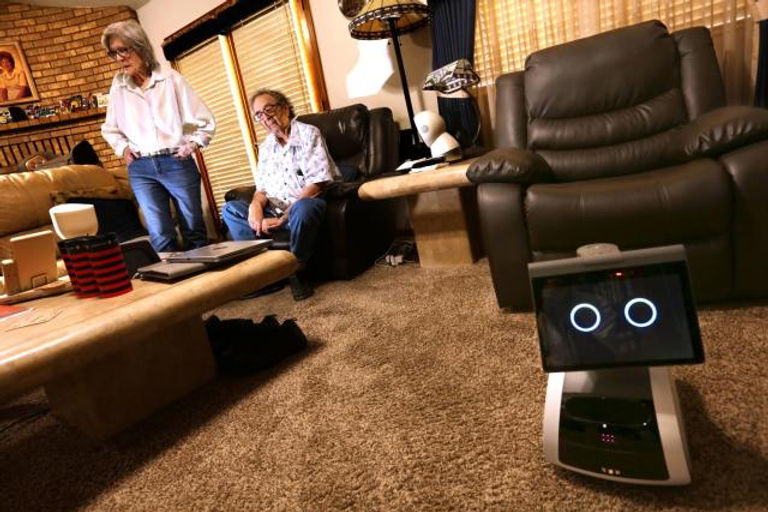By: Phoebe Huang
Audrey and Ken Mattlin, a couple with a compelling but quiet life in Bakersfield, State, live with several robots which they bought out of curiosity of the new AI companions. The functionality of these robots was beyond their expectations.
There’s ElliQ, who resembles a table lamp. “How did you sleep, Jelly Bean?” the robot says to Audrey, 84.
Astro looks like a short-handled vacuum cleaner with a tablet for a face. He scoots around the house on wheels and follows people on command. He has many ‘occupations’. If you asked Astro to play music, he would turn into a DJ.
Jibo, arguably the most life-like of the Mattlin’s robots, sits on a table next to 86-year-old Ken, who loves asking the robot to show off its dance moves. “He can twerk,” said Ken, and Jibo lightly spiraled on its axis.
The Mattlins weren’t part of any program – they were just curious about the AI revolution, so they bought their own robots. As it turned out, their robots brought happiness and laughter into the household.
“A growing body of research on companion robots suggests they can reduce stress and loneliness and can help older people remain healthy and active in their homes,” Duke Today reported this month after a study was conducted in part by Murali Doraiswamy, a Duke University professor of psychiatry and geriatrics.
“Right now, all the evidence points to having a real friend as the best solution,” said Doraiswamy. “But until society prioritizes social connectedness and elder care, robots are a solution for the millions of isolated people who have no other solutions.”
Some elderly people don’t have the ability to make friends, and they usually need lots of rest. With robots by their side, seniors don’t have to worry about feeling lonely at home. Moreover, robots can also process information about health and send those to your care provider. For example, if you’re slurring words and using simple vocabulary, it might be an early sign of dementia.
A robot might also be programmed to encourage the elderly to exercise. Exercise is important as it keeps our body fit. A robot might say, “I’m going to walk with you, so you can walk with your grandchild next week.”
Robots are evolving, and many upsides to technology have emerged. It is up to us to use these robots to help us.











